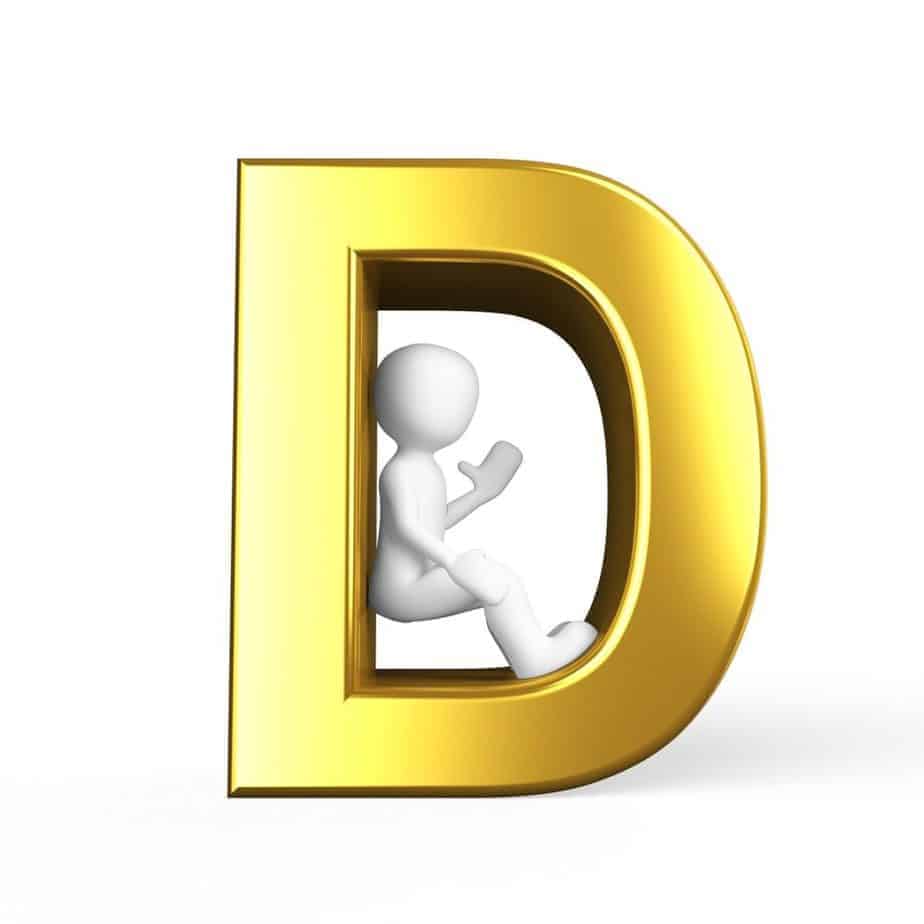Adjective: A word that modifies noun or noun phrase or describes its referent.
This particular concept of an adjective is needed to form a descriptive sentence or give meaning to it. From A-Z, every letter of the alphabet has an immense amount of adjectives, leading to the elevation of a line of a sentence. Unfortunately, English is sometimes a difficult but mostly a delicately crafted language, and sometimes forming dialogues using different adjectives can be a downright headache. Hence, here’s a list of adjectives with the letter “D” with meanings to your rescue.
Since adjectives describe objects, people, qualities, etc., the words range from positive to negative. Below are two lists of positive and negative adjectives, which can be used to describe and form direct and unique sentences. Furthermore, the given words can also be converted to their noun and adverb forms.
ADJECTIVES WITH D- POSITIVE MEANINGS
Dainty: delicately small and prettyDaring: willing to do dangerous thingsDawdle: move slowlyDauntless: undaunted, boldDecent: an acceptable qualityDecisive: able to decide quicklyDecorative: making something look attractiveDecorous: characterized by dignity, propriety, or good tasteDefinitive: setting something finally with authority, or the most accurate of its kindDeft: quick and skillfulDelectable: delightful or deliciousDelightful: very pleasingDeluxe: of a high qualityDeserving: worthy of favorable help or treatmentDevoted: dedicated, zealousDexterous: agile, skillful, artfulDivine: heavenly or having to do with gods/goddessesDocile: quiet and easy to controlDynamic: full of energy and ideas
ADJECTIVES WITH D- NEGATIVE MEANINGS
Dangerous: likely to cause and problemsDastardly: dated wicked or cruelDeceptive: misleadingDeficient: not having enough of a specified thingDepraved: morally corruptDeprecatory: expressing disapprovalDesolate: bleak and empty, very unhappyDire: very serious or urgentDiscordant: not in agreementDiscreditable: bringing discredit; shamefulDisdain: a feeling of scornful superiorityDisgruntled: angry or dissatisfiedDishonorable: bringing shame or disgraceDisingenuous: not sincereDisjointed: lacking logical or coherent connectionDismal: gloomy or depressingDismissive: treating something as unworthy of considerationDispensable: not essentialDisputatious: fond of arguingDistraught: very worried and upsetDogmatic: firmly putting forward your opinions and unwilling to accept those of othersDoleful: mournfulDrab: dull or uninterestingDubious: doubtful or hesitant; of uncertain value
While some of the adjectives in the list are used daily, some have proven to be useful for various purposes, be it job descriptions, emails, or essays. Analyzing further, it is noticeable that the number of adjectives with the letter ‘D’ has been of negative meaning than that of the number of positive meanings. Moreover, the list of positive adjectives is usually used to describe objects’ personalities, skills, or attributes. However, the majority of the negative adjectives describe the negative attributes of a person or situation.
Since the positive and negative adjectives have been covered, some words can be used in various contexts and concepts, creating impressionable and engaging content. The following adjectives can be used in formal and informal tones and describe surroundings, jobs, status, etc.
Daily: every day or every weekdayDebatable: open to discussionDefunct: no longer existing or functioningDelinquent: tending to commit a crimeDemanding: requiring much skill or effortDemonstrable: clearly apparent or able to be provedDemure: modest and shyDependent: relying on support or survivalDerisory: ridiculously small or inadequateDerelict: left to fall into ruinDesirous: strongly wishing forDestitute: very poorDeviant: different from what is considered normalDim: not bright or well litDiscerning: having or showing good judgmentDiscreet: careful to keep something secret or to avoid causing embarrassment Discretionary: done or used according to a person’s judgmentDiscursive: moving from subject to subjectDisparate: very different in kindDistinct: noticeably differentDivisible: capable of being dividedDoubtful: uncertain; probableDorsal: of or on the backDowny: covered with fine soft hair or feathersDrastic: have a strong far-reaching effectDreary: dull, bleak and, depressingDual: consisting of two partsDue: expected at a certain timeDuctile: able to be drawn into a thin wire
The above adjectives show a variety of words that can be used in different concepts. Mere words do not bound the concept of adjectives since they vary in type. The lists are given in this particular article range from demonstrative to qualitative, giving a vast choice of words and a greater vocabulary. However, most of the adjectives found in this particular criterion are found in the “de” section, although being in the same word search.
Every written form of the English language consists of formal and informal terms; twisting and molding the adjectives to their suitable format becomes easier when the given words consist of a great variety. While essays usually require a mix of creative words, professional platforms such as emails, newsletters, job applications, etc., demand a choice of formal words.
According to the observation done, it is quite clear that the letter ‘D’ of the alphabet binds a variety of adjectives, some having completely different meanings while words such as ‘desolate’ and ‘dreary’ share synonymous meanings. To conclude, an increase in vocabulary means an increase in knowledge, a better impression, and a great write-up. It is rightly said that simplicity is key. However, coming across unique words is a treat of its own.
